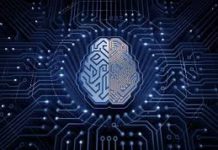Modern problems require modern solutions, that’s why several businesses are now turning to artificial intelligence (AI) for support. AI can support companies in different ways, ranging from automating tasks to improving security. Although it provides numerous benefits, you might still wonder how AI affects the current workforce. Continue reading to find out more about this topic.
Improves Manufacturing
Manufacturers may see significant growth in their operations once they operationalize AI. Now, product developers can support their projects with machine learning and by incorporating intelligent products. Companies can use these elements within the business’s walls and throughout the supply chain.
Moreover, AI can open new AI-related jobs in the manufacturing industry. Workers can educate themselves by providing more efficient and smarter solutions during the manufacturing process.
Many Manufacturers Are Now Seeking Dedicated Applicants With Expertise On Subjects, Such As The Following:
- Machine learning
- Collaborative robotics
- Data-quality analytics
- AI programming
- Software designing
Some businesses, within the manufacturing industry or otherwise, believe that implementing AI can lower the numbers of their human workforce. On the contrary, implementing smart business solutions may increase employee count, allowing organizations to open new jobs to the public.
Supports Various Business Operations
Chatbots are AI programs that simulate chats or conversations while using natural language through various messaging applications. You can see working chatbots on different social media platforms. These eliminate the need for an extra hire to answer queries from leads and customers on social media
For example, someone might ask what time do you open on your social media page. The programmed chatbot will immediately reply with the time indicated in your About page.
Aside from social media, AI can be a practical solution in the form of a communications conduit for in-house training. The software can learn different speaking patterns and relay them to employees. The application is usable as a source of advice for staff members in need of relevant information. For instance, call center agents in need of immediate information can use the in-house AI to request for necessary data. Conversely, if the AI isn’t present, the representative would need to ask and pester a superior to gain additional knowledge on a specific subject matter.
Consequently, organizations in the healthcare industry can use a similar approach to using AI technologies for searching relevant data. One example is when a pharmacist is looking for a specific medicine in a database. At first, the employee might type a medicine, like ibuprofen, on their database before a list of products appears on a monitor. With machine learning, the software can show the list when someone types in a short string, like “ibu”. The time saved from typing the complete word may look insignificant, but it can save time, nonetheless.
Transforms The Hiring Process
Various businesses find processes related to human resource as expensive, infuriating, and time-consuming. Dedicated human resource personnel can handle these tasks, but the stress left by doing all these tasks can put unwanted strain and pressure on employees’ well-being.
Adopting AI as part of human resource tasks can make significant positive impacts on the hiring process. Staff members, such as recruiters and hiring managers, can employ AI to bring recruitment operations to new heights.
For example, a company can use AI to help hiring managers write more convincing job descriptions than usual. Relevant software can use collected data from previous job postings to suggest changes in word usage and formatting. Another example is for recruiters to use AI to schedule interviews with candidates. Interested applicants can fill out forms, and a system will automatically select the best time for the meeting.
Reinforces Security
AI, smart equipment, and machine learning can provide enhanced security measures within the organization.
One way AI can reduce incidents in the workplace is by reducing human error. The human factor can play a vital role in workplace safety. Fatigue and stress can contribute to accidents, which can lead to numerous losses for the business. AI cannot get stressed. Hence, this technology can reduce human errors and would, therefore, reduce accidents.
Moreover, companies using AI apps and devices can monitor workplace harassment better than before. Note that a happy worker is a productive employee. Workplace harassment can deliver unwanted stress to employees, reducing overall productivity in the process.
Use AI to predict the norm within business walls. Special software can examine and highlight instances that are out of this norm.
Conclusion
AI can positively affect multiple facets of the workplace. Smart technologies, such as devices and software, create new opportunities for business efficiency and growth. Several industries, including manufacturing and healthcare sectors, can benefit from AI. But, ensure that the company chooses the right AI technology to reap many benefits.











